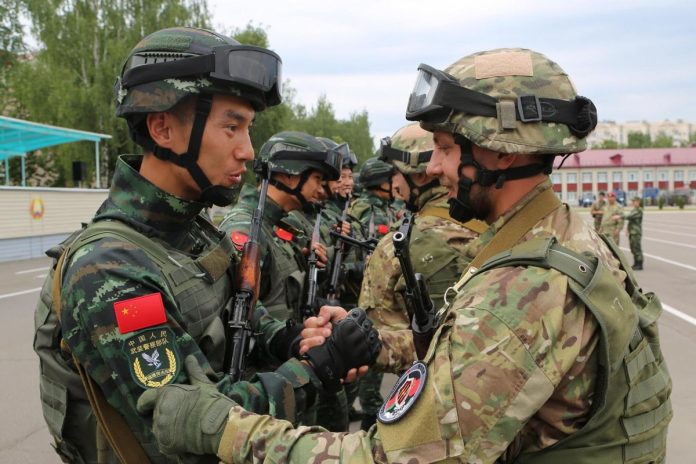The China-Belarus military drills signal a response to NATO’s growing influence in the Asia-Pacific region. Plus, the NATO declaration has drawn condemnation from Pyongyang, which warns of a strong strategic response.
Leaders of the alliance’s 32 member states and four Indo-Pacific partners – South Korea, Japan, Australia and New Zealand – discussed concerns about the strengthening military ties and partnership between Pyongyang and Moscow.
Shortly after the conclusion of the 2024 Summit in Washington, North Korea’s Foreign Ministry said the NATO declaration is fuelling a new cold war and military confrontation, according to Yonhap News. The declaration emphasises North Korea’s export of artillery shells and ballistic missiles to Russia violates numerous UN Security Council resolutions.
The Foreign Ministry spokesman also stated the situation requires a new strategy to counter US attempts to expand its military alliances. The Democratic People’s Republic of Korea (DPRK) has vowed to deter aggression and protect the world through a stronger strategic response, according to the statement.
China-Belarus drills as a signal for NATO
The interest of NATO in the Asia-Pacific region is raising queries from China, which this week is conducting the 11-day anti-terorrist drills with Belarus on its border with the alliance’s eastern members. The drills signal that NATO’s influence in the Asia-Pacific will provoke further Chinese involvement in Europe.
The Eagle Assault 2024 drills aim to increase military co-operation and enable the two nations “to work out the issues of night landing, overcoming water obstacles, and conducting operations in a populated area,” according to a statement from the Belarusian Ministry of Defence.
Chinese Foreign Ministry spokesman Lin Jian said questions about the security implications of the drills for NATO and Poland should be addressed to “competent authorities” but no threat to any country from such co-operation. The drills occur after the Astana meeting and reflect deepening ties between China and Belarus, the latest country to join the China-Russia-led Shanghai Co-operation Organisation (SCO).
The President of Belarus, Alexander Lukashenko, recently attended high-level meetings with Chinese President Xi Jinping and Foreign Minister Wang Yi. After Monday’s talks in Beijing, Wang Yi “expressed China’s willingness to deepen high-level exchanges, strengthen strategic synergy and deepen all-round cooperation with Belarus to advance their all-weather, comprehensive strategic partnership,” according to Chinese state media.
Crucially, both Russia and Belarus are China’s allies in eastern Europe. Earlier, China’s Xi made stops in Serbia and Hungary, strengthening relations with Hungary and Serbia. Now – the drills with Belarus, which point to a larger shift in China’s foreign policy.
